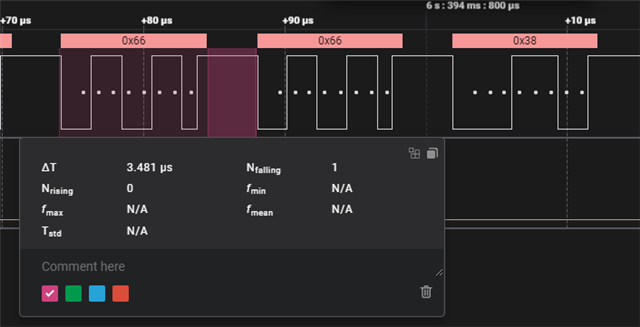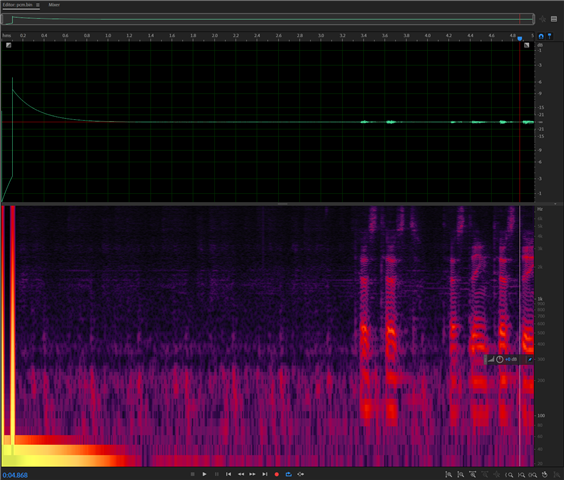I'm trying to continuously stream data from the dmic interface, in this case over serial though only for testing.
Things seem to be largely working except for pop/click artifacts between every block.
In this case the memory slab is setup for 4 blocks with enough memory for 100ms of audio, default settings taken from the dmic sample.
The pop is usually about 0.5-1ms long and per recording looks exactly the same each time and occurs in intervals equal to the block size. Large block size means less frequent intervals.
This smells like either samples are dropped between each block or I'm getting garbage data inserted somehow, though it does feel more like audio is missing/overwritten when a pop occurs.
Giving a really large block size like 1000ms of audio make the pop occasionally not occur.
My understanding is that the dmic driver continuously reads data as soon as the start flag is given and will choose a free memory block from the slab to write to. As long as I process a returned block quickly enough and free it then the dmic should not run out of memory or drop samples (if that is even a possible behaviour)?
I can't see an off by one error or similar in the way I grab the data either. It's a bit puzzling.
The interface is not throwing me any errors with debug log enabled.
Attached a sample recording and the project code. The python script can be used to translate the ASCII HEX string to a binary.
Using NCS 2.5.0




